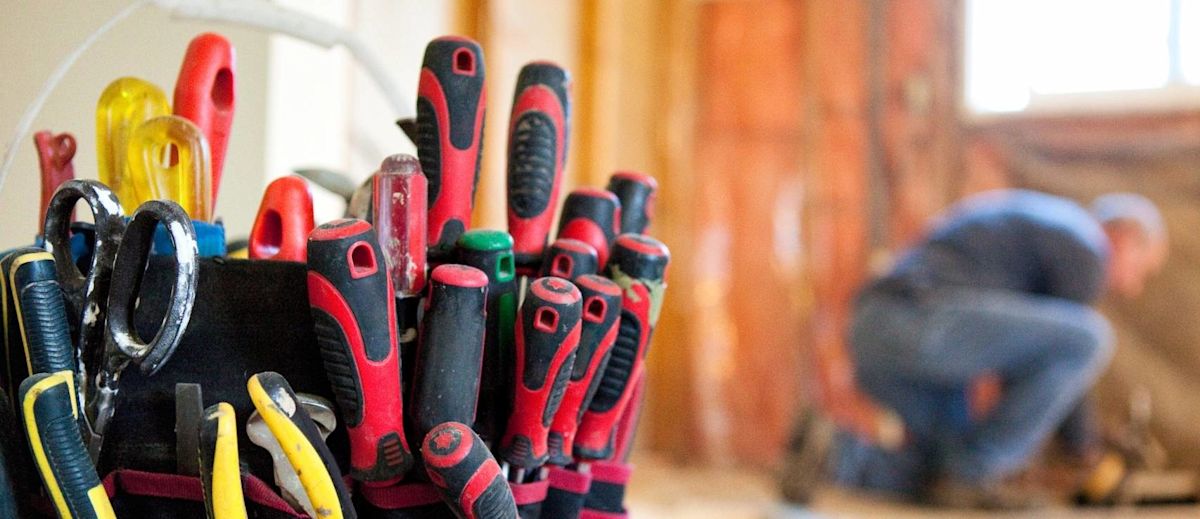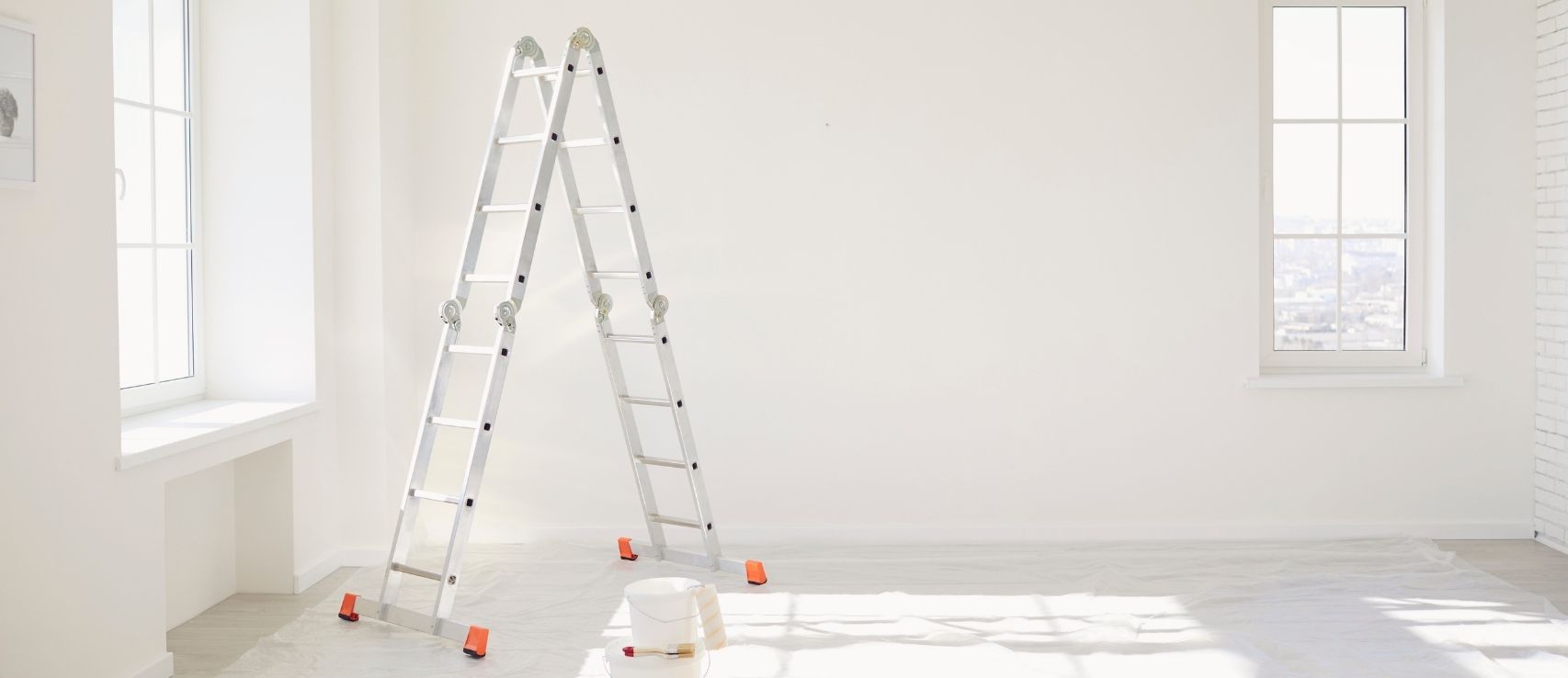
Planning Home Upgrades? Don’t Forget About Your Insurance!
Renovating your home is an exciting way to add value and make your space uniquely yours. But have you thought about how these changes might affect your house insurance? From increasing the insured value to adjusting liability coverage and premiums, home renovations can impact your policy in ways you might not expect—especially if you're adding high-value features. Understanding these potential changes early on can help you avoid surprises with your insurance costs and ensure your coverage stays up to date.
How home renovations impact insurance premiums
The impact of home renovations on your premiums depends on the type of work you do and the extent of the changes. If your renovations increase the value of your home or introduce new risks, you may end up paying more for insurance. Here are some things to consider:
Increased sum insured
Major projects, such as building a new room, renovating your kitchen, or installing new fixtures, can significantly increase the rebuild cost of your home.
This change affects your home insurance premiums, as they rely on the sum insured—the amount needed to rebuild your home if necessary. If the value of your home increases, you should review your sum insured, which may result in higher insurance costs. Make sure all your new upgrades are fully protected.
Liability coverage changes
Some updates to your home, like adding a swimming pool, spa, or trampoline, can create new risks. You might need to increase your insurance, especially liability coverage, to address these risks.
A higher level of liability coverage helps protect you if accidents happen at your home. Liability coverage can help cover expenses if a guest is injured at your home, but coverage limits and exclusions vary between insurers.
For example, if you add a swimming pool, you may need to increase your liability coverage, as it introduces more risks, which could raise your premium. Some renovations may require you to update your policy. Check with your insurer to confirm whether changes affect your coverage.
Want to know more? Discover insights and practical tips about house insurance in the 'Further Reading' section below.
What does renovation insurance cover?
Renovation insurance is important for several reasons. It helps protect you from unexpected issues during renovations.
This type of insurance can cover work that requires approval from your local council. It also provides protection against damage to your property during the construction period and covers the theft of materials.
Additionally, if someone is injured while working on your property, renovation insurance offers liability protection. If you're planning major renovations, you may need additional insurance cover to ensure all aspects of your project are protected.

What to do after renovating
After you complete a big home renovation, you should inform your insurer about the changes to your home insurance policy. If you don’t tell them, it might affect your ability to claim in the future. In some cases, it could even lead to the cancellation of your policy. By keeping your insurer updated, you ensure your existing house has full coverage for all the new features.
Get in touch with your insurer
After a significant renovation, contact your insurer to inform them of the changes and confirm whether your coverage needs updating. Failing to do this could impact future claims or, in some cases, even void your policy. By keeping your insurer updated, you ensure your home remains fully covered, including all those brand-new features.
Reassess your needs
Once renovations are complete, it’s wise to reassess the value of your home and contents insurance coverage. Tools like the Cordell Sum Sure Calculator can help you estimate your home’s current rebuild value, factoring in all your new upgrades. Alternatively, you could use a platform like Quashed to compare policies across multiple providers, helping you find the best coverage for your updated needs and potentially saving on rising premiums. Quashed makes it easy to manage all your insurance policies in one place, so you have full visibility of your coverage.
Consider extra options
Depending on the type of renovations, you may want to explore additional coverage options. If you’ve installed costly fixtures or custom finishes, consider adding a rider to protect high-value items. If you’ve set up a dedicated home office, additional contents insurance can ensure your equipment is covered.
Example: Let’s say you’ve put in some gorgeous custom cabinetry or an expensive entertainment system. These additions may not be fully covered under your standard policy, so it’s worth checking in with your insurer to see if extra coverage options are necessary.
Keen to learn more? Check out the Further Reading section below for valuable tips and insights.
Renovations for rental properties
When you make improvements to a rental property, keep in mind that even small updates can change your landlord insurance. For example, adding a new kitchen or updating the bathroom will increase the rebuild value of your property. This change also affects your liability coverage. Upgrading your rental means you are modifying what is covered and how much liability protection you have.
Keep your home and insurance in sync
Renovations can add value to your home, but they might also mean changes to your insurance.
Stay informed with Quashed—compare policies and check if your cover still meets your needs.
Make sure your insurance keeps up with your home's true value.
Further reading
Check out these reads:
Why Are House Insurance Premiums Increasing?: Factors driving rising insurance costs
8 Budget Hacks for House Insurance: Smart ways to cut costs
House Insurance Key Considerations: Essential things to think about
How to Compare House Insurance Quotes: Tips to evaluate insurance options
FAQs
Do I need to update my home insurance after renovations?
It is important to update your home insurance after making a big renovation. If you do not update it, it might affect your future claims or could even lead to the cancellation of your policy.
How do home renovations affect insurance premiums?
Home renovations can lead to higher insurance costs, especially when considering accidental damage coverage. This may occur if the cost to rebuild your home increases. It can also happen if you add new features, such as a swimming pool. A pool requires more liability coverage.
What types of renovations can increase my home insurance premiums?
Renovating your home can lead to higher home insurance costs. Adding things like a new kitchen, a new deck, or an extra room may increase these costs. Fun additions, such as a spa or a trampoline, can also introduce new risks. This might mean that you need more coverage for your home.
Will installing a swimming pool increase my home insurance costs?
Adding a swimming pool may change your insurance coverage. Some insurers adjust premiums based on risk factors, so it's best to check your policy. It’s important to inform your insurer so that your policy protects you from any possible accidents.
What happens if I don’t tell my insurer about home renovations?
If you don’t notify your insurer about significant renovations, it could affect future claims. Check with your provider to understand your policy requirements.
Can I lower my home insurance premiums after renovations?
Some insurers may lower premiums for security upgrades like modern alarm systems, but this varies. Check with your insurer to see if discounts apply.
How is Quashed different from other insurance platforms?
Quashed simplifies insurance by providing real-time information, so you can compare, manage, and stay on top of your policies—all in one place. Want to see how we measure up? Read our blog to find out more.
What factors affect the cost of house insurance in New Zealand?
The cost of house insurance is influenced by your home’s rebuild cost, location, and natural disaster risks.
What should homeowners consider when choosing house insurance?
As a homeowner, you should consider your property's rebuild cost, the type of coverage needed for both the building and contents, and whether you need additional protection for risks such as natural disasters.
This article provides general information only and does not constitute insurance or financial advice. Insurance policies vary between providers, and you should check with your insurer or a licensed adviser for guidance specific to your situation. For full details, refer to Quashed’s terms and conditions.
